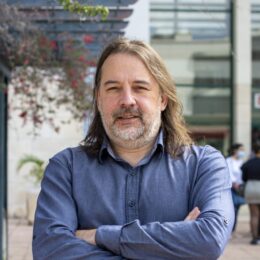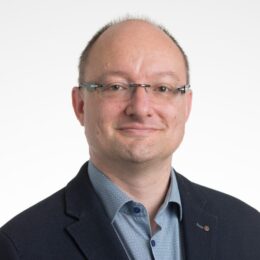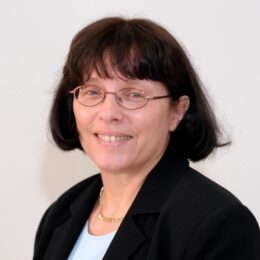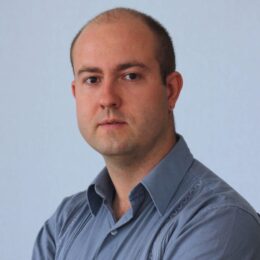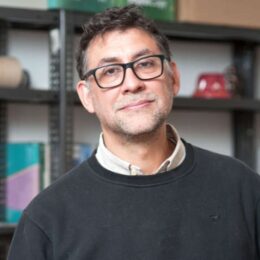Invited speakers
Eduardo Fermé, PhD in Philosophy by the Royal Institute of Technology (KTH), Sweden, and in Computer Science by the University of Buenos Aires (UBA), Argentina. Full Professor at Faculty of Exact Science and Engineering (FCEE) from University of Madeira (UMa) and Member of the General Council at UMa. Member in The NOVA Laboratory for Computer Science and Informatics (NOVA LINCS), Collaborator of the Madeira Interactive Technologies Institute at the University of Madeira (MITI) – LARSyS: Laboratory for Robotics and Engineering Systems, and of LIAMF (Laboratory of Logics, Artificial Intelligence and Formal Methods). Computer Science Department. University of São Paulo (USP/SP). Chair of 10 Scientific Projects since 2001, Senior researcher in 5 projects since 1997, supervised 4 Postdocs researchers, 7 Doctoral Thesis (4 ongoing) and more than 34 master’s dissertations (5 ongoing). Chairman of 12 Scientific Encounters, currently is member of the Steering Committee for 2 international Workshops, and Editorial Board of 4 Journals related to Artificial Intelligence. Author of 1 scientific book in Dynamic of Knowledge / Logic of Theory Change., 6 Edited Books/ Special Issue of Journals, Guest Editor in 3 special journal issues, 34 papers in PeerReviewed International Journals, including top journals as Artificial Intelligence and Journal of Symbolic Logic, 11 Book Chapters in scientific books and more than 30 papers in Refereed International Conference Publications, including top Conferences like IJCAI, ECAI, KR.
Sebastian Rudolph is full professor for computational logic and head of the AI Institute at TU Dresden. His scientific interests revolve around artificial intelligence, with a particular focus on logical formalisms and methods for knowledge representation and reasoning, ranging from theoretical foundations (such as semantic and computational properties) to practical deployment (including ontological modeling and interactive knowledge acquisition). In the course of an ongoing ERC Consolidator Grant, his team currently investigates general principles of decidability in logic-based knowledge representation.
Gabriele Kern-Isberner is a (recently retired) Professor for Information Engineering at the department of computer science at the TU Dortmund. She received her doctoral degree in mathematics from the University of Dortmund, and her habilitation degree and venia legendi in computer science from the FernUniversitaet in Hagen.Her scientific work focuses on qualitative and quantitative approaches to knowledge representation such as default and non-monotonic logics, uncertain reasoning, belief revision, and argumentation. Her research interests include in particular the development of methods that help integrate approaches from different fields, such as the combination of first-order logic and probabilities, or building bridges between default reasoning, belief revision, and learning. Recently, she has been focussing on cognitive logics, i.e., formal logic-based approaches to reasoning that can model human reasoning even if it is in obvious conflict to classical logics. As part of this work, she developed explanation models to reverse-engineer human reasoning behaviour. She has been involved in the organization of major conferences in AI. In particular, she was co-PC-chair of KR 2022 and General Chair of KR 2023.
Mantas Šimkus is a Senior Scientist at the Institute of Logic and Computation at TU Wien (Austria). From 2024 he will be a Guest Professor at Umeå University (Sweden) in the WASP program (Wallenberg AI, Autonomous Systems and Software Program). He currently leads an FWF (Austrian Science Fund) project “Compiling Knowledge into Applications”, which, among other problems, studies the logical foundation of database constraint languages derived from Description Logics. The research interests of Mantas Šimkus are at the intersection of Description Logics, Non-monotonic reasoning, and Database Theory. Specifically, he has worked on several approaches to combining Description Logics and rule-based languages, and—more broadly—on reconciling the open-world and the closed-word assumptions of various well-known formalism for knowledge representation and reasoning.
Enrico Franconi is a full professor at Free University of Bozen-Bolzano. His research is the application of database, artificial intelligence, and semantic technologies to concrete problems in information systems design and maintenance, in data integration, intelligent access, analysis and restructuring of big data. The KRDB Research Centre for Knowledge and Data was founded in 2002 by Enrico Franconi, who is currently its director, and it aims at being an international centre of excellence in basic and applied research on Knowledge Representation and Database technologies and at proposing to selected enterprises innovative ideas and technologies based on the research developed in the centre.

